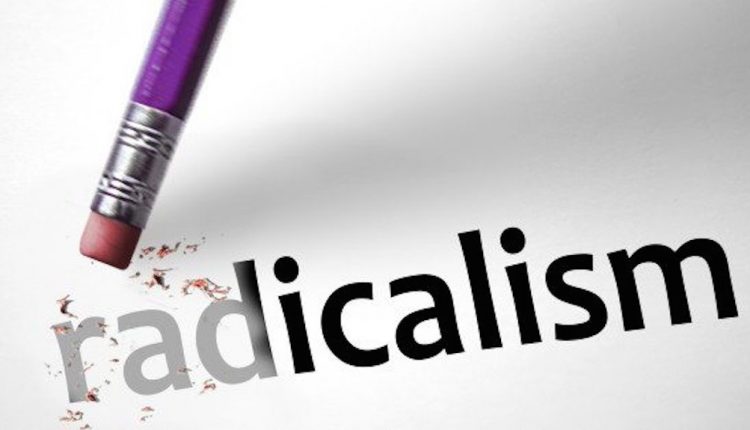Beware of Radical Group Activities during a Pandemic
By : Rahmat Gunawan *)
The Covid-19 pandemic is a moment for intolerance and radical groups to build a narrative to delegitimize legitimate government in various countries in the world, including Indonesia. This is mainly through social media.
As stated by Komjen Boy Rafli Amar as Head of the National Counterterrorism Agency (BNPT) that the practice of delegitimizing the government’s role occurred as in the early days of the Covid-19 pandemic. Where there are some groups who are anti-vaccine by blowing hoax news.
Based on the data that the author got, from about 273 million people in Indonesia, there are about 202 million people who are internet users. Of this number, 80 percent are owners of social media accounts and the owners of these accounts are millennials and generation Z. This generation is the target of global terrorist network groups, they breathe narratives to build a spirit of hatred for the legitimate government.
The author is of the opinion that the Covid-19 pandemic has become a common challenge in dealing with groups trying to build narratives of intolerance and radicalization against the government. Therefore, it is necessary to have counter-narrative programs that can be carried out by BNPT.
Social media is one of the most frequently used places to support the existence of terrorists. They need recognition to then cause widespread fear through social media so that their existence can be recognized by many people.
Teenagers and students are the most users of social media in Indonesia. Therefore, Komjen Boy Rafli Amar encouraged efforts from campus institutions to increase student resilience from the influence of intolerance and radicalism during the current pandemic.
The author agrees with the opinion of the Head of BNPT because as a generation that is familiar with cyberspace, they are vulnerable to being influenced by intolerance and radicalism that is so easily spread by intolerant and radical groups on social media.
In addition to the efforts of campus institutions, the role of the younger generation, especially students, is needed in preventing the exposure of intolerance and radicalism, such as producing counter-narrative content in the digital space. Thus, the development of the seeds of intolerance and radicalism that are harmful to the integrity of the Unitary State of the Republic of Indonesia in the digital space can be stopped.
The development of social media must also be taken advantage of to strengthen the unity and integrity of the nation’s children. Do not become a fertile space for propagator of ideas that are contrary to Pancasila and the Unitary State of the Republic of Indonesia. We all have to be active agents of change who spread counter-narratives of radicalism, spread positive things that can strengthen the integrity, unity and integrity of Indonesia, especially during a pandemic like now.
The narratives on social media can
break the ties of brotherhood, the ropes of diversity, then the aspects that become obstacles in advancing this nation we must be aware of together. Basically all elements of society, without exception, should be involved in preventing the spread and overcoming of intolerance, radicalism, and terrorism. Because it can be likened to a virus that enters the body, but is not realized by humans.
The author invites the public to be wary of social media content that contains narratives that divide brotherhood, diversity, and hinder the progress of the nation. Do not accept the information on social media raw, it is necessary to cross check with other news. So that there is no such thing as misinformation and the spread of hoaxes can be reduced.
To anticipate the use of social media by radical groups during this pandemic, BNPT will continue to collaborate with interfaith leaders. Together they will educate and invite the public to be sensitive to the propaganda and invitations made by these radical groups. The author agrees with the steps taken by BNPT because the religious narrative echoed by the radical group justifies violence against fellow human beings, not in accordance with religious rules and state principles. So that cooperation between BNPT and interfaith leaders is the right action.
The author also argues that religion has a very important role to unite the Indonesian nation. In its interpretation, religion must have a moderate view, religion must be used as a source of inspiration, a source of solutions to social problems, a motivation for empowering people and gluing social positions in society. So that religion is not used as an excuse as a source of causes for the spread of radicalism.
The author emphasizes once again to the public to always re-check the truth of the information obtained through social media. Especially when a pandemic like the current spread of intolerance, radicalism, and terrorism is often carried out by radical or extremist groups. The public must immediately stay away from information that is proven to contain narratives to divide the unity of the Indonesian nation, such as narratives about anti-Pancasila, anti-democracy, anti-diversity, and anti-tolerance.
The role of community organizations is also very important in countering narratives on social media to counteract and counter the narratives of terrorism, radicalism, and separatism groups. So that it can reduce and eliminate the narrative that can divide the unity of the Indonesian nation.
*The author is a contributor to the Mulia Institute
